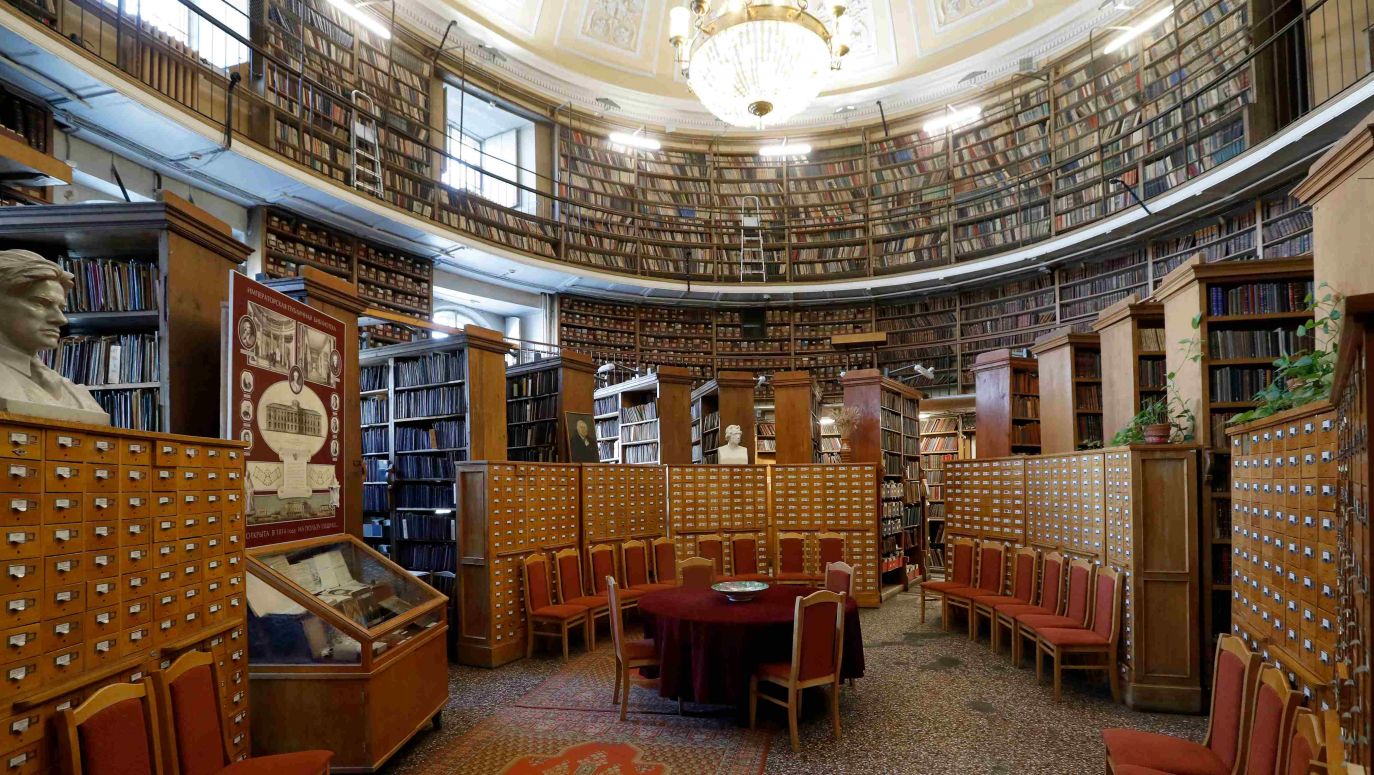In early November, the Warsaw Prosecutor’s Office launched an investigation into the theft of eight volumes from the University of Warsaw Library (Biblioteka Uniwersytetu Warszawskiego – BUW). But the scandal broke earlier, on 16 October 2023. It was discovered that the borrowed old prints hadn’t been returned in full. As a result, the director of BUW Anna Wołodko was dismissed on October 30, as was her deputy for special collections, Katarzyna Ślaska, the following day.
In mid-October, staff at the BUW’s Collection Access Unit discovered the theft of eight volumes of 19th-century Russian publications. A reader had left blank covers and dummy books at their workstation in place of the original publications from the library’s collection. A careful analysis of the nineteenth-century publications recently ordered for the BUW Reading Room revealed that the dummy books returned to the storeroom in place of the original objects were greater in number; to date, we have determined that this applies to approximately 80 volumes – wrote Wołodko on X (previously Twitter). It’s about luxury, often limited editions of Russian literary masterpieces, those of: Mikhail Lermontov, Nikolai Gogol, Alexander Pushkin…
Such cimelia are objects of desire for collectors, who are often not interested in the origin of the work. Their value is difficult to estimate, it may even exceed €500,000. An audit of the library is underway.
In response to the uproar caused by the dismissal of the two ladies as well as in response to the communiqué published on X, the rector of the University of Warsaw, Alojzy Nowak, issued his own statement, saying that the thieving practices had lasted for over a dozen months and were international in character. In December 2022, the Criminal Investigation Department of the National Police Headquarters informed BUW that, at the request of the Latvian Police, it was conducting activities in the area of “seizure with a view to misappropriation” of the collections of the Latvian National Library. The Polish National Police Headquarters indicated the owner of the library card holder and asked BUW to provide all data concerning this person.
 SIGN UP TO OUR PAGE
SIGN UP TO OUR PAGE

It turned out that the reader identified by the police visited the library twice on the day of registration – on November 8, 2022. They borrowed the books that a year later were deemed stolen.
Baltic liaison
Rector Nowak has informed about negligence at BUW: it wasn’t checked out in December 2022 if there hadn’t been a theft of books by a person indicated by the Police Headquarters, no contact was established with the Latvian party. All this despite the fact, that the news of the theft attracted a lot of international attention – it was made public as early as April 2022. According to the Latvian police, the stolen items were: Alexander Pushkin’s poem “Poltava” from 1829 and a collection of poems “Vozropshchem” by Aleksei Kruchonykh from 1913. A likeness of the suspect was also published.

 SIGN UP TO OUR PAGE
SIGN UP TO OUR PAGE
 It turned out that the reader identified by the police visited the library twice on the day of registration – on November 8, 2022. They borrowed the books that a year later were deemed stolen.
It turned out that the reader identified by the police visited the library twice on the day of registration – on November 8, 2022. They borrowed the books that a year later were deemed stolen.





